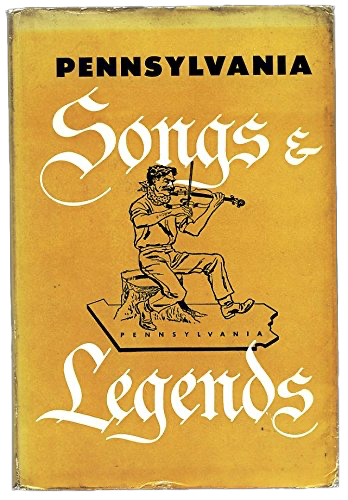
University of Pennsylvania Press 1949
Appalachian Mining Songs Five Folksongs arranged for SATB or TTBB chorus with solo voices and piano and optional harmonica. View Notes and Lyrics.
A dramatic dialogue about a fight in the mines.
2. Down in a Coal Mine View score. Listen to midi.
The hearty young miner sings of life in the mines.
3. *The Shoofly View score. Listen to PSGC. Lawson-Gould 52938
Life in the mining towns, before and after the coal is gone.
4. *Union Man View score. Listen to PSGC. Lawson-Gould 52939
Humorous depiction of the ever-present tense relationships between the union and management.
5. *Blue Monday View score. Listen to midi. Lawson-Gould 52940
The miners got paid on Saturday night and spend all their money on Sunday making for a Blue Monday!
These songs were sung by 19th and early 20th century miners in the Appalachian Mountains of Pennsylvania, West Virginia, Ohio and Kentucky.
The songs originally appeared in Pennsylvania Songs and Legends edited by George Korson (1899-1967) and published by the University of Pennsylvania Press in 1949. Korson had collected the songs from the singers, miners and saloonkeepers who wrote and sang them.
The choral and vocal arrangements are dedicated to the memory of my father, William Trinkley (1890-1960), who began working in the coal mines of Pennsylvania when he was 9 years old.
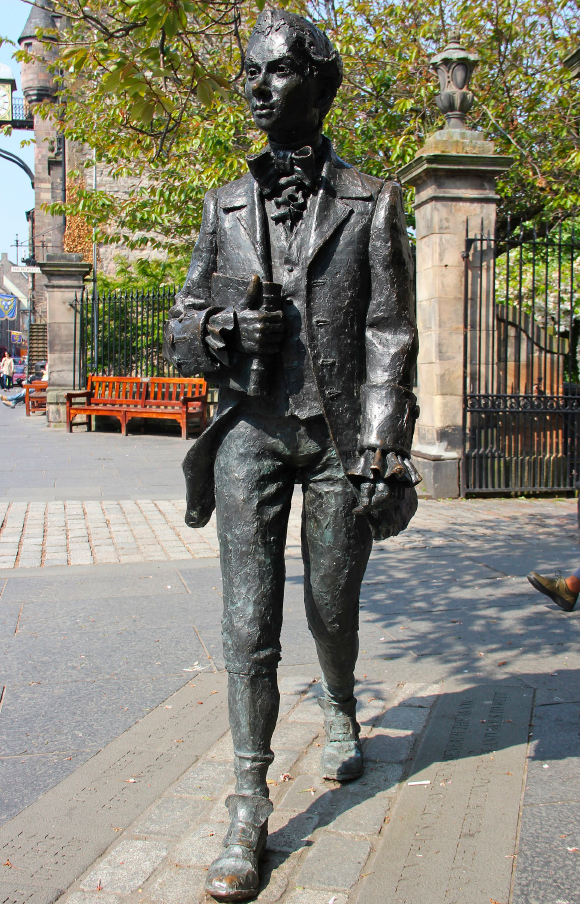
Auld Reikie for mixed chorus and piano. Poems of Robert Fergusson (1750-1774) (11 min.)
Settings of the great Scottish poet as he observes life and death as well as love and humor in 18th Century Edinburgh.
Duration: 10 minutes
Premiere: The Gregg Smith Singers performed the original choral version, conducted by the composer at St. Peter’s Church at the Citicorp Center, NYC. The recording is by the legendary choral ensemble.
2. On the Music Bells Playing
3. The Lee-Rigg
4. The Author’s Life
5. On Seeing a Lady Paint Herself

Emily Grosholz: Four Choruses for SATB voices and piano or chamber ensembles.
Settings of poems by Penn State poet Emily Grosholz. They were included in Mountain Laurels: A Choral Symphony. The recordings are all from the original settings.
Download full score with notes and poems.
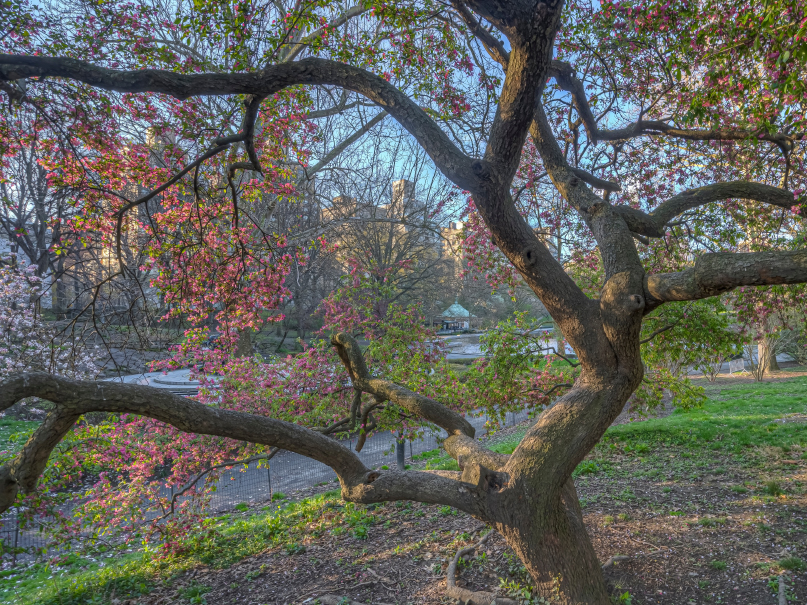
Five Choral Dances for mixed chorus and piano. Poems by Peter Viereck (1916-2006).
Premiere: Penn State Concert Choir, Douglas Miller, conductor. October 31, 1992; New York City;
November 14, 1992, Recital Hall at Penn State.
Peter Viereck, Pulitzer Prize-winning poet, takes on T.S. Eliot and Joyce Kilmer in parodies of their most famous poems. He salutes the poetic qualities of all vegetables but especially the lowly potato. The potato has never been treated so lavishly! And lastly a beautiful warm love song.
Read Peter Viereck’s poems. Download the full choral cycle score.
2. Love Song of Prufrock Junior View score. Listen to Concert Choir.
3. The Reaching Out of Warmth Is Never Done View score. Listen to Concert Choir.
4. To a Sinister Potato View score. Listen to Concert Choir.
5. A Gnarled Old Crab-apple Tree Answers Joyce Kilmer View score. Listen to Concert Choir.
I’ll bow my trunk to true simplicity
But not to folksy simperings that drool.
Poems are made by trees like me,
But only God can make a fool.

Gary Snyder Songs Four Choruses for SATB and SAB Voices and Piano.
Poems by Gary Snyder.
Poet, writer and activist Gary Snyder was associated with the Beat poets and immersed himself in Zen Buddhism. A leading voice of environmental concern, Snyder has written widely on ecology and the preservation of the natural world. These choruses would be a fitting tribute on Earth Day or for any program honoring the earth and the environment.
Read the poems.
2. Long Hair View score. Listen to midi.
3. Prayer for the Great Family View score. Listen to midi.
4. The Wild Mushroom View score. Listen to midi.
Well the sunset rays are shining
Me and Kai have got our tools
A basket and a trowel
And a book with all the rules . . . . ..
So here's to the mushroom family
A far-flung friendly clan
For food, for fun, for poison
They are a help to man.
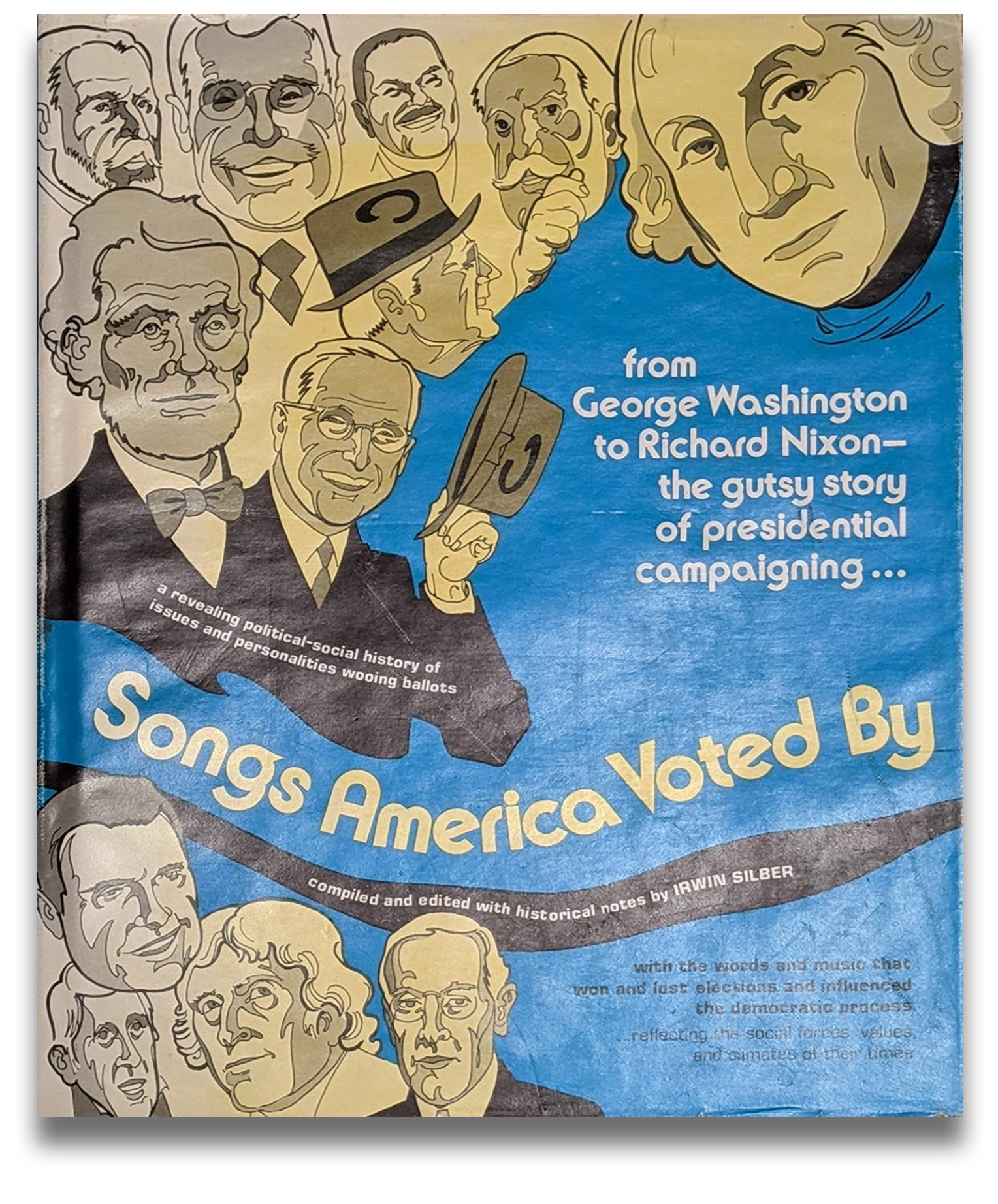
God Save Great Washington Presidential Campaign Songs from 1786 to 1972. 14 minutes.
15 songs for SATB or TTBB voices with solo voices and piano with optional string bass and percussion.
Commission and Premiere: The Penn State Glee Club performed the medley at every election year Homecoming Concert – with a straw vote taken with the audience! The songs still reflect the passions, vitriole and humor that partisan politics and the candidates inspired – from the earliest, God Save Great Washington for the campaign of George Washington in 1792, to Nixon Now in 1972. Most of the campaign songs in this collection are drawn from Songs America Voted By, compiled and edited by Irwin Silber.
Download score. Listen to Penn State Glee Club.
Herrick’s Lyricks Cantata for Chorus, Four Solo Voices and Piano. Poems by Robert Herrick (1591-1674)
Commission and Premiere:
Chesapeake Chorale Chamber Singers, Jesse Parker, conductor. April, 2017.
Herrick, the English poet and contemporary of Milton, was born in London and educated at Cambridge to become a minister. His poems are monuments of wit. The sophisticated poet wrote to his upper class readers praising the simplicities of country life and country wisdom. Two of his most famous poems, To the Virgins, to make much of Time and To Daffadills, are major works of the carpe diem (seize the day) tradition which enjoins us to enjoy the moment as it happens. The over-riding message of Herrick’s work is that life is short, the world is beautiful, love is splendid, and we must use the short time we have to make the most of it.
Read the poems. Download the score. The most popular poems may also be viewed separately.
Click on the titles to listen to the Chesapeake Chorale.
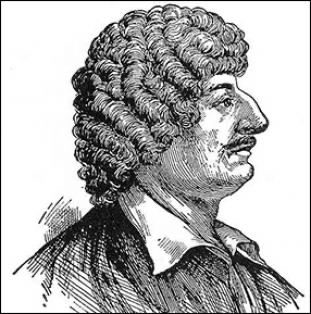
2. To the Virgins, to make much of Time (Gather ye Rose-buds while ye may) Chorus View the score.
3. The Head-ake Tenor Solo
4. Upon Cupid Women’s Chorus
5. To Music, to becalm his Fever Chorus View the score.
6. His content in the Country Chorus
7. The wounded Cupid. Song Trio for Soprano, Alto and Tenor
8. His Grange, or private wealth Chorus
9. Upon his departure hence Baritone or Bass Solo
10. To Sir Clipseby Crew (Drinking Song) Men’s Chorus
11. Four Epigrammatic Couplets
12. Again Tenor Solo
13. The Covetous still Captives Alto Solo
14. Lawes Baritone or Bass Solo

Gather ye rosebuds while ye may,
Old Time is still a-flying;
And this same flower that smiles today
Tomorrow will be dying.
The glorious lamp of heaven, the sun,
The higher he's a-getting,
The sooner will his race be run,
And nearer he's to setting.
That age is best which is the first,
When youth and blood are warmer;
But being spent, the worse, and worst
Times still succeed the former.
Then be not coy, but use your time,
And while ye may, go marry;
For having lost but once your prime,
You may forever tarry.
knots: a 20th Century Madrigal Psycle for three-part chorus or three solo voices and optional instruments
Texts by R.D. Laing (1927-1989).
Commission and premiere: Contemporary Dance Company,
Patricia Heigel (1935-2009), choreographer.
Shirley Donovan, soprano; Cathy Ufema, mezzo-soprano; Douglas Smith, baritone.
When knots was published, it quickly became a cultural and literary sensation. The paperback blurb: “A series of dialogue-scenarios, which can be read as poems or plays, describing the "knots" and impasses in various kinds of human relationships.” The titles tell all.
Download score. Click on titles to listen to midi.
2. My mother loves me
3. Positive and negative binds
4. I am not entitled to what I have
5. She has started to drink
6. a finger points to the moon
7. All in all
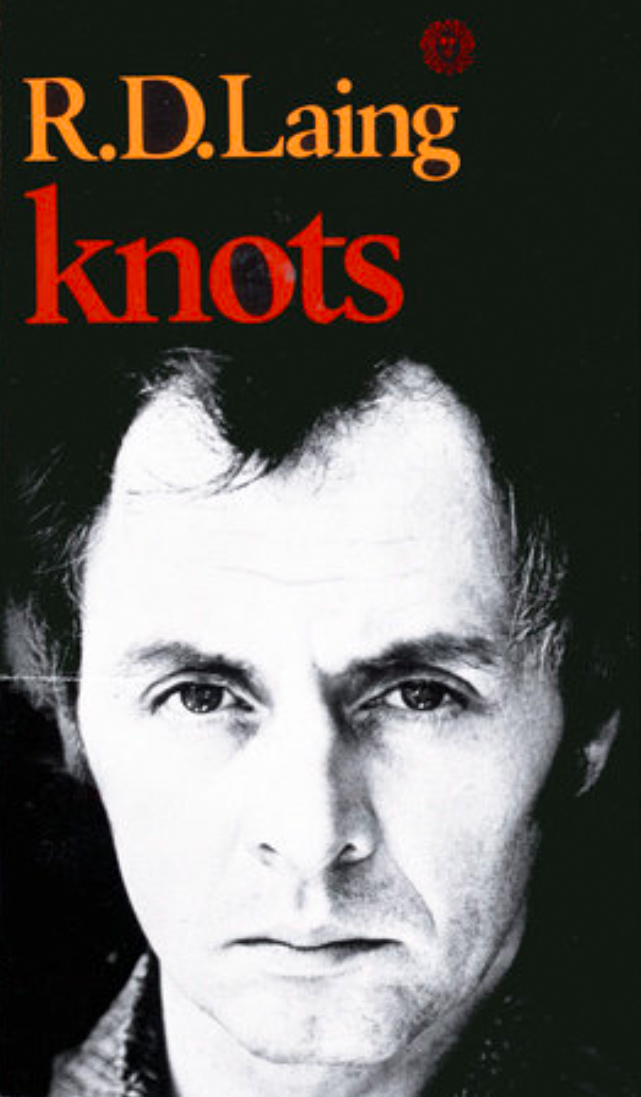
There must be something the matter with him
because he would not be acting as he does
unless there was
therefore he is acting as he is because there must be something the matter with him
He does not think there is anything the
matter with him because
one of the things that is the matter with him
is that he does not think that there is anything
the matter with him
therefore
we have to help him realize that,
the fact that he does not think there is anything
the matter with him
is one of the things
that is the matter with him.
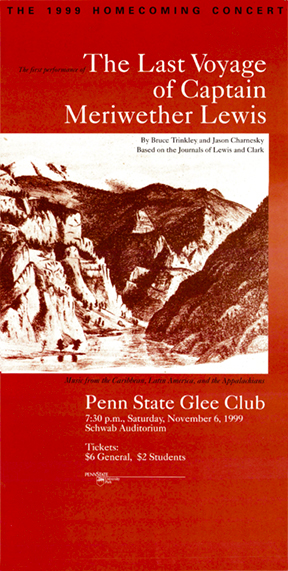
Lewis and Clark’s Corps of Discovery Seven Choruses with soprano, tenor and baritone soloists, and piano or chamber ensemble (violin, viola, cello and piano). Text by Jason Charnesky.
This choral cycle is derived from the dramatic cantata entitled The Last Voyage of Captain Meriwether Lewis which imagines the thoughts and fears that befell Lewis during the last hours of his life. The cycle chronicles Lewis’ life on the Expedition, with songs of joy and accomplishment, adventure and danger, humor and discovery. The Corps travels up the Missouri to discover “A New Eden”; the men describe meal time in “Mess Call”; York shares a tall tale; Lewis recounts a bear hunt; and Sacajawea sings a lullaby to her newborn. The last movement depicts the physical and psychic hardships brought on by the arduous and dangerous journey across the forbidding Bitterroot Mountains; and then the joy of discovering at the mouth of the Columbia River their goal: the Pacific Ocean.
To listen to the SATB scores on midi, contact the composer.
Download full score or view the individual choruses below. The recordings are of the Men’s Chorus versions sung by the Penn State Glee Club.
2. A New Eden (soprano, the Corps and Lewis) View score. Listen.
3. Mess Call (soloists and the Corps) View score. Listen.
4. York (Clark, Lewis, York and the Corps) View score. Listen.
5. A Grizzly Tale (Lewis and the Corps) View score. Listen.
6. Bird Woman (Sacajawea and the Corps) View score. Listen.
7. Bitterroot (Lewis, York, Clark and Chorus) View score. Listen.

The Library Five Choruses for SATB Voices Unaccompanied.
Texts from the Rotunda of the Chicago Public Library.
During a composer residency in 2010 at the historic Ragdale Foundation, an artist colony in Evanston, Illinois, I visited the magnificent architectural landmark of the Chicago Public Library in the Loop. I was captivated by the quotes from famous writers in the Rotunda and lingered there to write them down - and that became my project for the Ragdale residency.
These choruses are dedicated to lovers of libraries and literature, and readers of all ages.
Download the text and full score.
2. A Library Text by Victor Hugo (1802-1885) Listen to midi.
3. A Good Book Text by John Milton (1608-1674) Listen to midi.
4. The Real Use of Knowledge Text by Francis Bacon (1561-1626) Listen to midi.
5. He That Loveth a Book Text by Isaac Barrow (1630-1677) Listen to midi.

Mennonite Songs Cantata for SATB Chorus, Solo Voices and Piano. Poems by Julia Spicher Kasdorf.
Premiere:
Goshen College Chamber Choir, Scott Hochstetler, conductor. November 17, 2017
Duration: ca. 27 minutes
Download the complete score and lyrics.
View the premiere performance with Julia and Bruce’s commentaries.
Julia Kasdorf ‘s evocative poems from her collections The Sleeping Preacher and Poetry in America describe her memories of growing up in Mennonite communities in Big Valley, PA. I wrote the songs hoping they would be sung by young people – high school or college age – and that they would learn about the culture of the Mennonites, whether they were of Mennonite ancestry or not. After the premiere at Goshen, I was touched to learn that one of the singers now had a greater understanding of the lives of his grandparents from experiencing these songs.
2. A Family History SATB Chorus
3. The Sleeping Preacher SA Chorus and Two Solo Voices
4. The Only Photograph of My Father as a Boy SATB Chorus
5. Grossdaadi’s Funeral Four Solo Voices
6. When Our Women Go Crazy SATB Chorus
7. Dying with Amish Uncles TTBB Chorus and Solo Voices
8. That Story Soprano and Baritone Solo Voices
9. Leftover Blessings SA Chorus and Two Solo Voices
10. Oral Tradition SATB Chorus and Two Solo Voices
11. Mennonites SATB Chorus
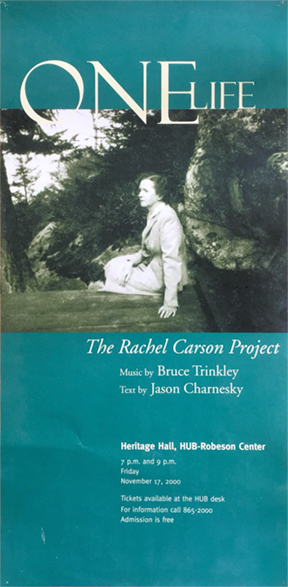
One Life: The Rachel Carson Project Cantata for SATB Chorus, Solo Voices and Piano, withoptional Flute, Horn and Violoncello. The work may also be performed with Narrator.
Text by Jason Charnesky, based on the life and writings of Rachel Carson (1907-1964).
The original cantata was scored for women’s voices and has been adapted for mixed voices. The audio clips below are performed by the
Oriana Singers, Discantus and two soloists: Elisa Matthews, soprano, and Jan Mianulli, mezzo-soprano.
Download narrator’s script and lyrics. Download piano-vocal score. Individual movements may be viewed or listened to below.
2. The Elements of Life Chorus View score. Listen to Oriana Singers.
3. Science Is a Job for Men Women’s Quartet View score. Listen to Discantus.
4. A Walk in the Woods Soprano solo View score. Listen to Elisa Mathews, soprano
5. Spring Song Chorus View score. Listen to Oriana Singers.
6. The Watery Sea Soprano solo View score. Listen to Elisa Mathews.
7. The Airy Sea Alto solo View score. Listen to Jan Mianulli, alto.
8. The Song of Control Women’s Quartet View score. Listen to Discantus.
9. Silent Spring Chorus View score. Listen to Oriana Singers.
10. Rachel’s Creed Soprano, Alto, Speaker and Chorus View score. Listen to Oriana Singers.
11. Finale Soprano, Alto, Speaker and Chorus View score. Listen to Oriana Singers.
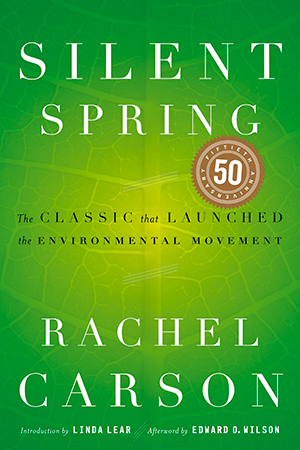
March came this year
with no butterflies.
The skies that should have carried
clouds of gnats and graceful nymphs
is empty.
No cricket sings.
No grasshopper wings
from grass to leaf.
And all of spring
is silent.
April came this year
but the sparrow did not follow.
No robins roundelay,
no oven-bird, no jay.
No buzz of beeand the apple tree
does not bear fruit.
And all the fields
and all the sky
is silent.
May came this year
but no hawk flew about.
Silent rivers without trout.
And no tree frogs sang,
and the forest never rang
with the symphony of life.
And all the air,
and all the waters,
and all the earth
is silent.
A cloud of poison came
and gave
a silent spring.
Open House: Roethke Cantata For SATB Chorus, Soprano and Tenor Soloists and Piano or Chamber Orchestra.
Poems by Theodore Roethke (1908-1963).
The cantata pulls together the various settings of poems by Roethke that were composed for Mountain Laurels: A Choral Symphony written for the Centenary of State College, PA. The scores are of the voice and piano versions, but the recordings are all from Mountain Laurels. When I began research as part of my 1993-1994 sabbatical leave project, I intended to write a small piece after the manner of Frostiana which Randall Thompson wrote to poems by Robert Frost - to celebrate the 200th Anniversary of Amherst, MA. I ended up with several dozen poems by 17 poets. But Roethke took top honors, with 10 poems. So here is what should have been an abbreviated Mountain Laurels. The poems show Roethke’s virtuosity as a writer - his sense of humor, his lyricism and nostalgia, and finally, in The Summons his moral compass. In this, his Phi Beta Kappa commissioned poem, he looks at Europe in 1939 and summons all people to take action.
All audio clips are from the original performances in Mountain Laurels.
Download complete score. Individual movements may be viewed or listened to below.
2. Reply to Censure Chorus View score. Listen to State High Chorus.
3. Night Journey Soprano solo View score. Listen to Susan Boardman, soprano.
4. Mid-country Blow Tenor solo View score. Listen to Children’s Chorus.
5. Vernal Sentiment Chorus View score. Listen to Vocal Ensemble.
6. The Premonition Chorus View score. Listen to Concert Choir.
7. The Bat Soprano and Tenor soloists View score. Listen to Children’s Chorus.
8. Idyll Soprano and Tenor soloists View score. Listen to Vocal Ensemble.
9. “Long Live the Weeds” Chorus View score. Listen to State High Chorus.
10. The Summons Chorus View score. Listen to Choral Society and Nittany Valley Symphony.
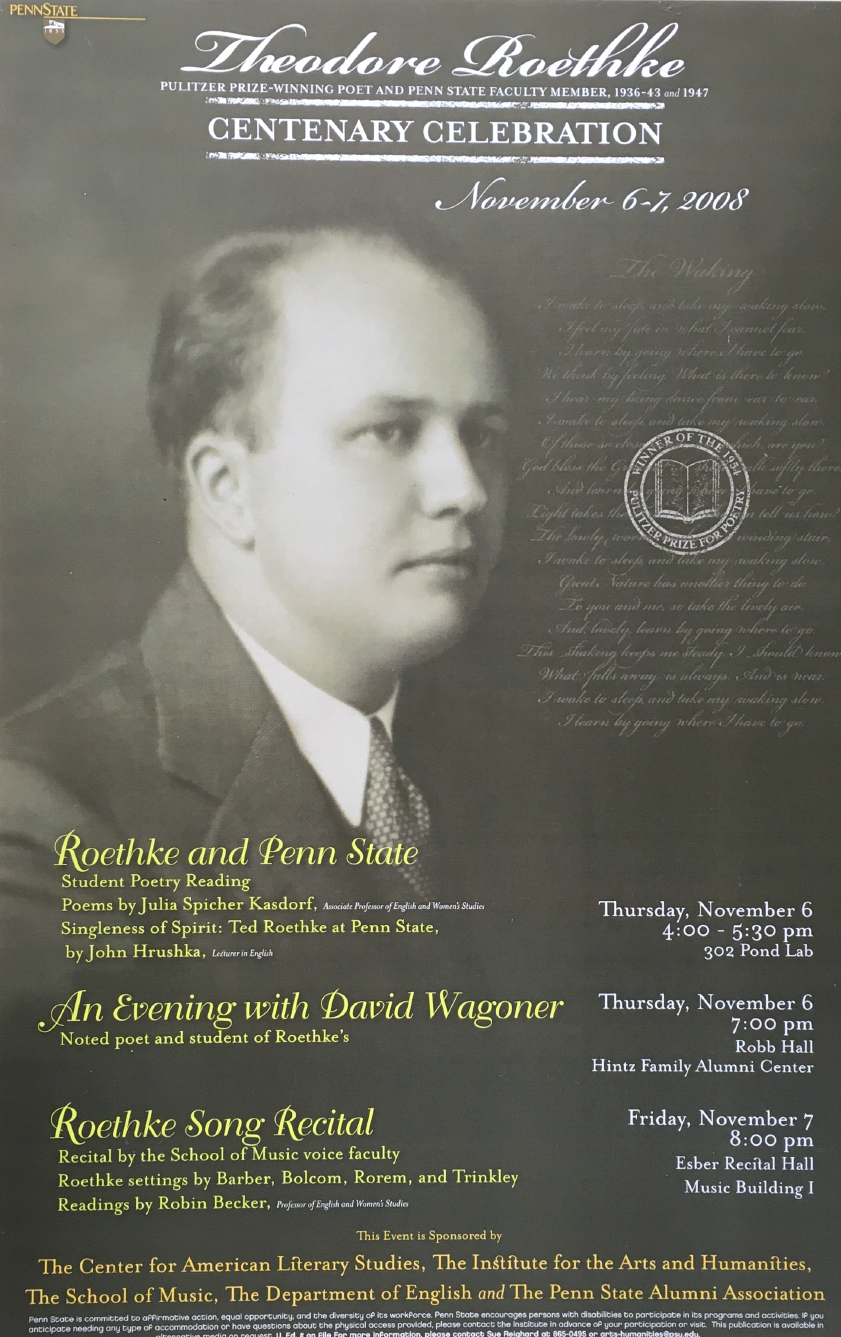
Now all who love the best,
Old and rebellious young,
Must contemplate the waste
Of countenancing wrong:
The human mired, the brute
Raised up to eminence,
The mimic following suit
Until devoid of sense.
The good becoming gross,
All this we may discern;
By slow degrees we learn
The full extent of loss.
Though the small wit we have
May nullify belief,
The simple act can save
The heritage of life.
With secrecy put by,
The heart grows less obtuse,
And fervency of eye
Is put to better use.
The impulse long denied,
The lips that never move,
The hatred and the pride,
These can be turned to love.
Now we must summon all
Our force, from breadth to length,
And walk, more vertical,
Secure in human strength.
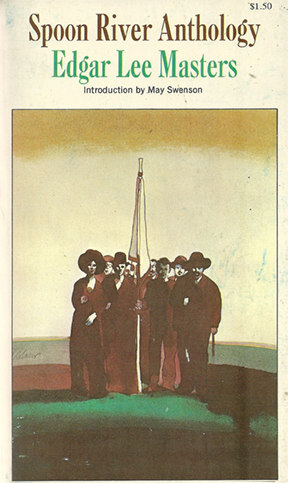
Spoon River Triptych Three choruses from Spoon River Anthology by Edgar Lee Masters (1868-1950) for mixed chorus, soloists and piano.
Premiere: Columbia University Glee Club. Low Library, May 1968.
Spoon River Anthology was published in 1916 and made an immediate impact: Readers had never before seen poems like these free verse epitaphs, each spoken by the ghost of a departed citizen of Spoon River, Illinois. The epitaphs reveal the secret lives of these rural and small town Americans, at times tragic, at time humorous, but all captivating to the reader.
Read the notes and poems.
These Things Shall Be for mixed chorus (or men's chorus), solo voice and keyboard or organ and optional brass quintet.
Text by
John Addington Symonds (1840-1893).
Commission and Premiere: Federal City Performing Arts, Washington D.C.
When I conducted the Washington chorus, dear friend Everett Waldo brought this poem to my attention and urged me to set it to music. Do compare the passion and eloquence of the two poets, Theodore Roethke in The Summons and now J. A. Symonds in:
These things shall be: a loftier race
Than e'er the world hath known shall rise
With flame of freedom in their souls,
And light of knowledge in their eyes.
They shall be gentle, brave, and strong,
To spill no drop of blood, but dare
All that may plant man's lordship firm
On earth, and fire, and sea, and air.
Nation with nation, land with land,
Inarmed shall live as comrades free;
In every heart and brain shall throb
The pulse of one fraternity.
New arts shall bloom of loftier mould,
And mightier music thrill the skies,
And every life shall be a song,
When all the earth is paradise.
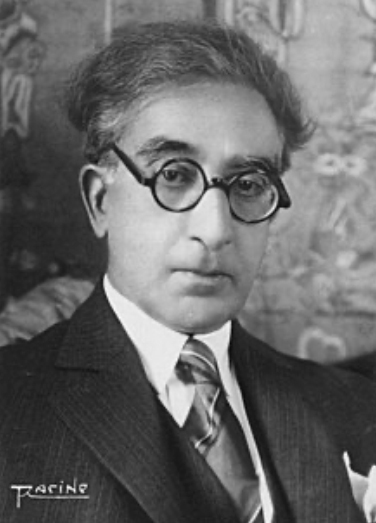
(1863-1933)
Voices for SATB chorus, soloists and piano. Also available for SSAA or TTBB chorus. YR 4902v2
Poems by Constantine Cavafy (1863-1933), the most distinguished Greek poet of the 20th century. The poems chronicle his life and clandestine loves in Istanbul and Alexandria in the early years of the century. His powerful poem Expecting the Barbarians chronicles fears and rumors in an ancient city, but can also apply to the threat of invasion and war in modern times.
The War Prayer For Speaker, Soloists, SATB Chorus, and Keyboard or Brass Quintet and Percussion Ensemble. (First performance with dancers and speaker.) Text by
Mark Twain (1835-1910).
Commission and Premiere: Kaleidoscope, Contemporary Dance Company, Patricia Heigel (1935-2009), choreographer; The Pennsylvania Vocal Ensemble, Bruce Trinkley, conductor; with Susan Impress Mianulli, soprano; Tim Wallace, speaker, brass chorale and percussion ensemble. The Playhouse Theatre at Penn State. 1972.
Revival: Penn State Glee Club and Women’s Chorale with Penn State alumnus Jonathan Frakes as the Messenger. 1990.
Download the piano-vocal score. Listen to the 1990 revival.
After a great collaboration on Carousel in the summer of 1971, Patricia Heigel wanted to work together again. And one Sunday morning browsing the book rack at Nittany News on College Avenue I discovered and read right there in the store Mark Twain’s devastating indictment of war – The War Prayer – and immediately knew this was the piece for our collaboration – calling for dancers, singers, and instruments. Pat depicted a small town excitedly preparing to send their sons off to glory in the war. And when the messenger/angel/prophet/devil arrives in the church where the people are praying for victory and defeat of their enemies, Pat choreographed a searing depiction of the horrors of war. The music likewise moves from the marching tunes of going to war to the serial ravages of the battle. This is one of my most important pieces. Mark Twain’s text is still the most powerful indictment of war that exists. The piece ends with the chorus quietly intoning the final lines of the text: The townspeople sing:
(The Messenger, after a pause.) “Ye have prayed it; if ye still desire it, speak! The messenger of the Most High waits.” It was believed afterward that the man was a lunatic, because there was no sense in what he said.